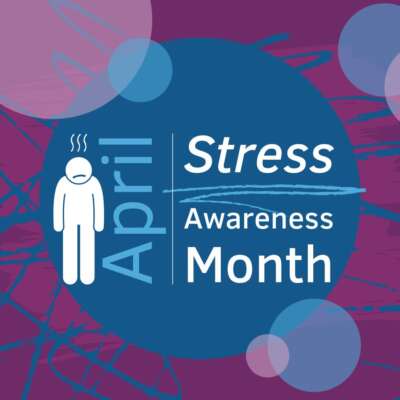
Have you ever just felt like something was off? You’re not quite able to pinpoint it and whenever you bring it up to your family physician, they tend to write it off, but you just don’t feel yourself. Did you know that stress can be that little nagging invisible irritant that never shows up on any test your doctor orders? Fortunately, East Asian Medicine doesn’t need a test to determine whether or not your stressed out. And acupuncture is one of the best tools for dealing with stress.
What kind of effect does stress have on our bodies? Insomnia, pain and headaches, to name a few, can really ruin your day. You can have stress that is related to a chronic illness or injury, mental stress that is leading to psychological issues like anxiety or insomnia or even stress related to something joyful, like training for a marathon and completing it, even though you thought you were going to die at the finish line. Stress is a natural component of any symptom or illness, whether physical, mental or joyful. Stress can manifest as disharmony anywhere in the body if not managed over time.
As we head into April aka National Stress Awareness Month, the American Psychological Association (APA) has commissioned an annual nationwide survey as part of its Mind-Body campaign called “The Stress in America TM survey.” The results from 2022 say that the United States is one of the most stressed out nations in the world, with Montana named the least stressed out state and Louisiana named the most stressed out state. Why? You name it…inflation, politics, national security, etc. We’ve got it all here. But despite the results of the survey, there are things you can do to help:
1. Meditate – listen to a guided meditation to start off or end your day and put your body in a relaxed state.
2. Exercise – simple things like tai chi, qigong or even walking can be enough to help lower stress and relieve tension
3. Positive sleeping hygiene – turning off electronics at least 30 minutes before bed, keeping the bedroom a little cooler and reading a chapter in a book right before hitting the pillow can all help to relieve stress
4. Self care – soaking in an Epsom salt bath or sitting in an infrared sauna before bed can be beneficial for decreasing your daily stress load
5. Nutrition – decreasing your caffeine intake or cutting back on sugary foods and drinks can help to mediate the inflammation that leads to physical stress in the body
6. Soften your environment – adding some soft lights, spa like music or even aromatherapy can convert your home into a place of relaxation
If you’re still having issues with both physical and mental stress, then it might be time to get some professional help. Acupuncture is a phenomenal way to combat stress. Imbalances and disharmonies can be detected long before chronic disease manifests using tongue and pulse diagnosis.
During an acupuncture treatment, the patient rests comfortably for about 30 minutes. Acupuncture improves circulation, floods the brain with endogenous opioids, releases serotonin and Noradrenalin and calms the nervous system simultaneously during every treatment. And these are just some of the benefits that acupuncture can provide.
So if you’re feeling out of sorts, grumpy, tired or even suffering from some mystery pain, why not book an acupuncture appointment? You really have nothing to lose and everything to gain.

